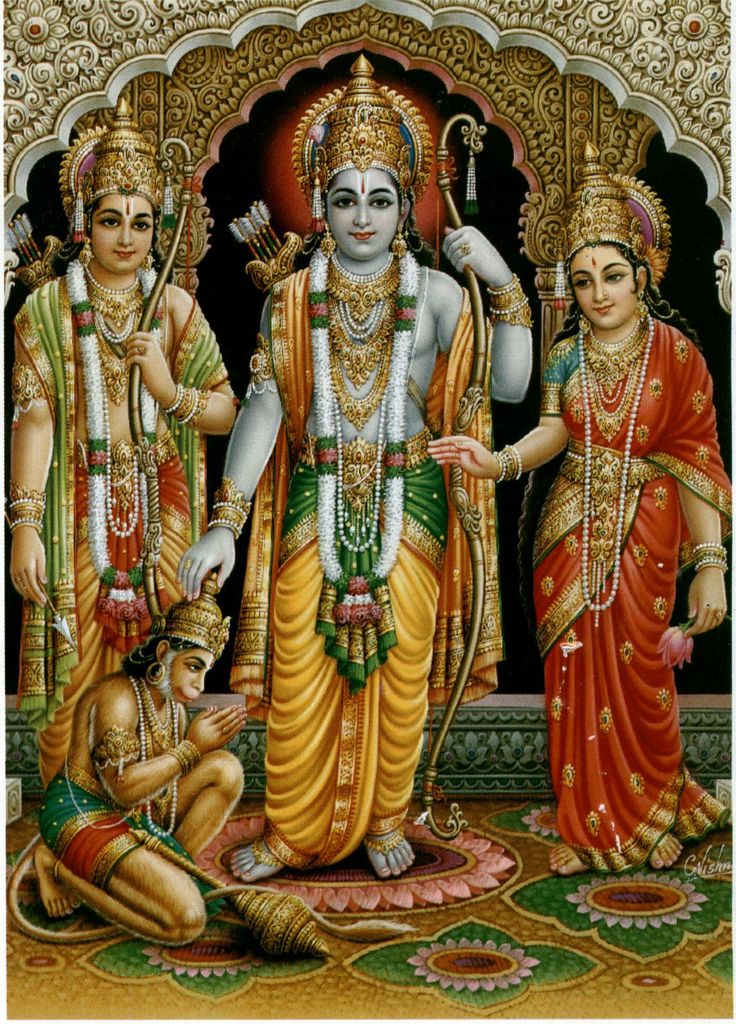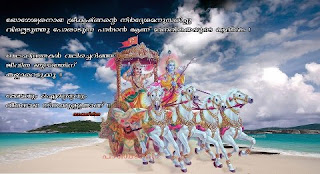The Great Epic Mahabharatam :7.
A discourse of Swami Vivekananda on Mahabharatam :
Delivered at the Shakespeare Club, Pasadena, California, February 1, 1900.
So, to this Rajasuya sacrifice all the liberated kings came, along with those conquered by the brothers, and rendered homage to Yudhishthira. King Dhritarashtra and his sons were also invited to come and take a share in the performance of the sacrifice. At the conclusion of the sacrifice, Yudhishthira was crowned emperor, and declared as lord paramount. This was the sowing of the future feud. Duryodhana came back from the sacrifice filled with jealousy against Yudhishthira, as their sovereignty and vast splendour and wealth were more than he could bear; and so he devised plans to effect their fall by guile, as he knew that to overcome them by force was beyond his power. This king, Yudhishthira, had the love of gambling, and he was challenged at an evil hour to play dice with Shakuni, the crafty gambler and the evil genius of Duryodhana. In ancient India, if a man of the military caste was challenged to fight, he must at any price accept the challenge to uphold his honour. And if he was challenged to play dice, it was a point of honour to play, and dishonourable to decline the challenge. King Yudhishthira, says the Epic, was the incarnation of all virtues. Even he, the great sage-king, had to accept the challenge. Shakuni and his party had made false dice. So Yudhishthira lost game after game, and stung with his losses, he went on with the fatal game, staking everything he had, and losing all, until all his possessions, his kingdom and everything, were lost. The last stage came when, under further challenge, he had no other resources left but to stake his brothers, and then himself, and last of all, the fair Draupadi, and lost all. Now they were completely at the mercy of the Kauravas, who cast all sorts of insults upon them, and subjected Draupadi to most inhuman treatment. At last through the intervention of the blind king, they got their liberty, and were asked to return home and rule their kingdom. But Duryodhana saw the danger and forced his father to allow one more throw of the dice in which the party which would lose, should retire to the forests for twelve years, and then live unrecognised in a city for one year; but if they were found out, the same term of exile should have to be undergone once again and then only the kingdom was to be restored to the exiled. This last game also Yudhishthira lost, and the five Pandava brothers retired to the forests with Draupadi, as homeless exiles. They lived in the forests and mountains for twelve years. There they performed many deeds of virtue and valour, and would go out now and then on a long round of pilgrimages, visiting many holy places. That part of the poem is very interesting and instructive, and various are the incidents, tales, and legends with which this part of the book is replete. There are in it beautiful and sublime stories of ancient India, religious and philosophical. Great sages came to see the brothers in their exile and narrated to them many telling stories of ancient India, so as to make them bear lightly the burden of their exile. One only I will relate to you here.
There was a king called Ashvapati. The king had a daughter, who was so good and beautiful that she was called Sâvitri, which is the name of a sacred prayer of the Hindus. When Savitri grew old enough, her father asked her to choose a husband for herself. These ancient Indian princesses were very independent, you see, and chose their own princely suitors.
Continues...

.jpg)


Comments
Post a Comment